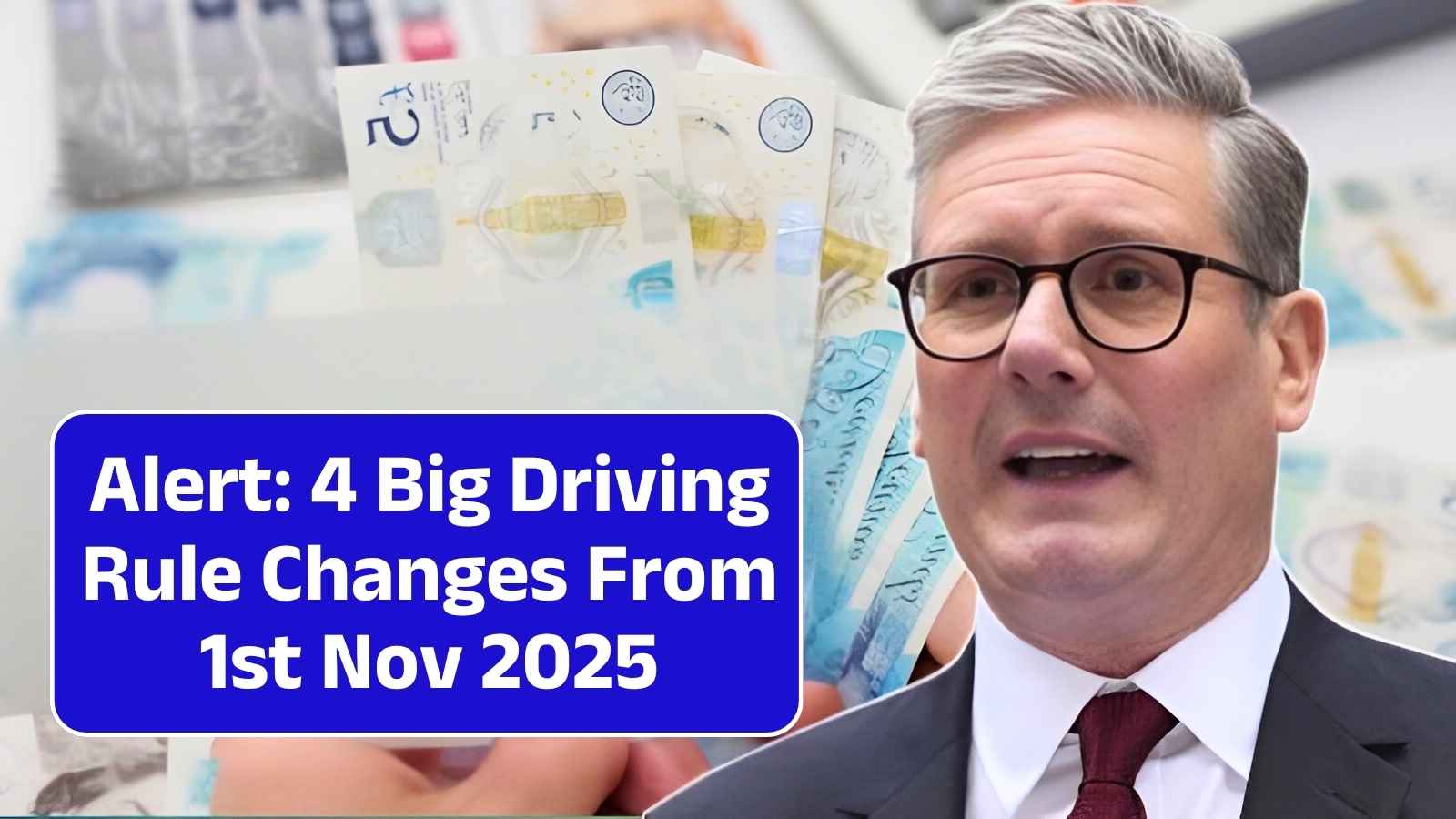If you’re behind the wheel, there’s no time to ignore this. From 1st November 2025, four major driving rules are changing, and getting caught out could cost you money, points on your license, or worse. Don’t worry – we’ve broken everything down in a simple, easy-to-read guide so you know exactly what’s new and how it affects you.
What Are the New Driving Rule Changes and Why They Matter
Starting 1st November, the government is introducing four big changes aimed at making roads safer and reducing accidents. These changes cover speed limits, seat belt laws, mobile phone use, and insurance requirements.
Here’s a quick overview:
- Stricter speed enforcement in built-up areas
- Mandatory seat belt use for all passengers, including rear seats
- Tougher penalties for using mobile phones while driving
- Updated insurance verification rules
These rules matter because even minor infractions can now carry heavier fines or points on your license. Staying informed is the first step to staying safe and legal.
When the New Driving Rules Start – Mark Your Calendar
All four rule changes officially kick in on 1st November 2025. That means from that date, enforcement will be live, and police and traffic authorities are expected to issue fines for violations immediately.
It’s worth noting: if you’re caught out even a day after the change, the penalties will apply in full. So updating your habits before this date is crucial.
How Each Driving Rule Change Works – Explained Simply
Let’s break down each new rule so there’s no confusion:
| Rule | Old Law | New Law | Penalty |
|---|---|---|---|
| Speed limits in urban areas | 30 mph standard, some cameras | Automatic speed enforcement, stricter thresholds | £100 fine + 3 points |
| Seat belt use | Front seats mandatory only | All passengers, front & rear | £150 fine per unbelted passenger |
| Mobile phone use | Handheld phone banned while driving | Ban extends to devices on mounts, including texting | £200 fine + 6 points |
| Insurance verification | Insurance required at time of accident | Real-time digital verification mandatory | £300 fine + license suspension risk |
These changes are designed to simplify rules for drivers but also make enforcement more consistent.
Common Mistakes With the New Driving Rules and How to Avoid Them
Many drivers will get caught because they assume the old rules still apply. Here’s what trips people up most:
- Believing rear passengers don’t need seat belts
- Thinking brief glances at a phone are allowed
- Ignoring speed limit signs in residential areas
- Failing to update or digitally link insurance details
To avoid mistakes, review your car, your habits, and your insurance now. Small changes can save big headaches.
Best Tips to Stay Compliant With the 2025 Driving Rules
Here’s a checklist to make sure you’re ready for 1st November:
- Buckle up all passengers, even for short trips.
- Use hands-free devices only if they fully comply with the new law.
- Check speed limits before entering new zones – cameras will catch you.
- Ensure your insurance is verified digitally through your provider or app.
- Stay updated with local traffic news and alerts – some areas may introduce new signage or enforcement cameras.
Conclusion
The 1st November 2025 changes are significant but manageable. Remember: speed limits are stricter, all passengers must wear seat belts, phone use is harsher, and insurance verification is mandatory. Adapting now keeps you safe and avoids fines. A few simple steps today can prevent a lot of trouble tomorrow.
FAQ
When do the new driving rules come into effect?
All new rules start on 1st November 2025, with enforcement beginning immediately.
What happens if I don’t wear a seat belt in the rear seat?
You can be fined £150 per passenger and risk points on your license.
Why is insurance verification being updated?
The update ensures drivers are insured in real-time, reducing uninsured driving incidents.
How strict is the new mobile phone law?
Any use of handheld devices, even for brief glances or devices on mounts, can result in fines and points.
Can I still speed slightly over the limit in urban areas?
No, stricter enforcement means even small breaches can trigger fines and points.



